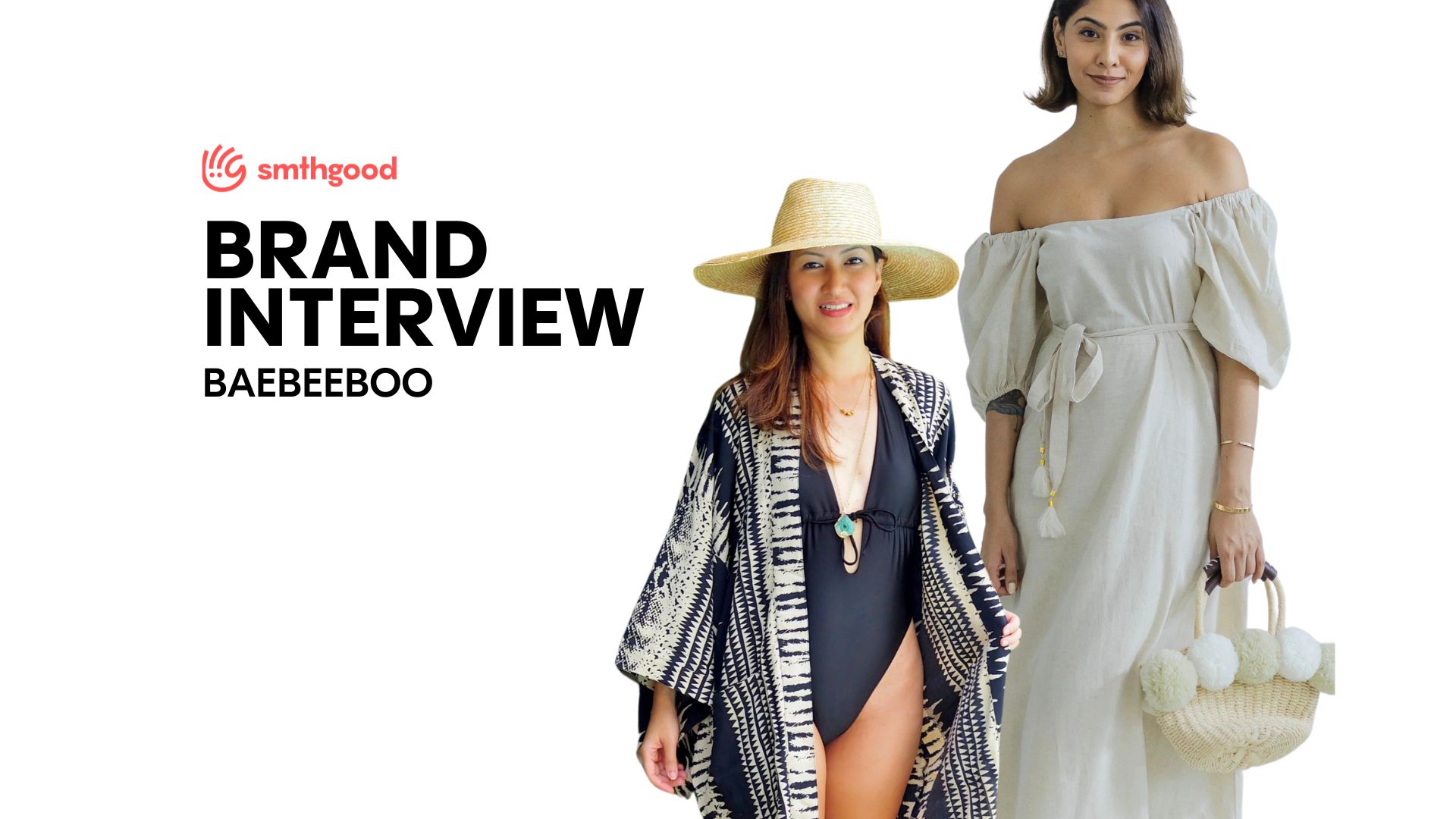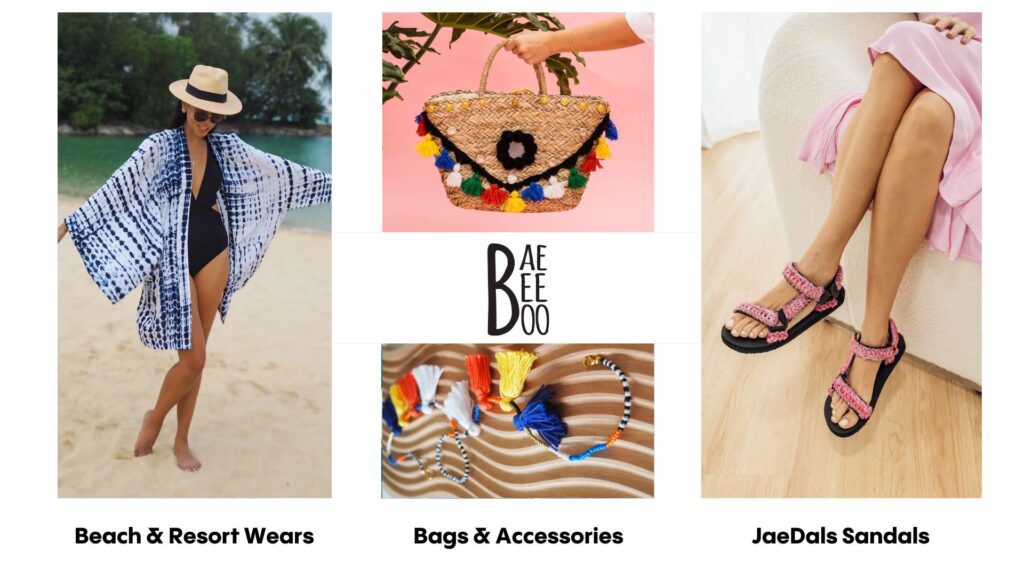Exclusive Interview With Brand: Baebeeboo

Join us for an in-depth exclusive interview with the founder of Baebooboo, a bohemian social-conscious resort wear brand, to discover the brand story, values, and dedication behind the brand.
SECTION 1: ABOUT YOU
1. Would you share a bit about yourself and where you’re from?
Hi, I am Maggie Chan. I was born a Singaporean but grew up with a heart of a wonderer. I have been residing in Australia, Hong Kong, and Singapore for the last 20 years.
2. How did it all start?
Always have a flare or passion for fashion. The background is that I have been in the advertising industry for the last 20 years and when my first daughter was born, Bae I have decided to start my new social-conscious resort wear label as I saw a missing market for bohemian cute resort wear kaftans, especially for children that are made ethically in good quality and looks beautiful that she can wear at home and out.
3. Was it always the intention to become a sustainable and ethical designer?
Yes. For whatever venture or creative project I start or started, I will always include an ethical social contribution back to it. Because I truly believe we all need to do our part no matter how big or small to give back in order to spin the cycle of happiness in this world.
4. What was it that first raised your awareness of the issue of fast fashion?
Documentaries and content and I know more than others because I am in the industry I know more than the public and its saddening and heartbreaking to know these sweatshops torture and provide horrendous work environments for these workers.
SECTION 2: ABOUT YOUR BRAND

1. Could you tell us more about your label?
Baebeeboo was born when my first child Bae was born. Bae is her middle name, Bee is my husband’s name and Boo is what I call them.
2. What is the ethos when you design?
The ethos behind our brand is to give back through each of our sales from us donating a portion of our profit to a shelter home we have supported for years called New Light India. And also some of our products are made locally here in Singapore collaborating with social enterprises to work with low-income women in Singapore.
2.1 And what defines your style?
I am eclectic, boho, and individualistic. I love experimenting and having fun with fashion.
3. What have been some of the biggest challenges for you on this journey?
Manufacturing, being a small local boutique brand in Singapore – a tiny island with a small market.
4. What do you want to achieve personally with your brand?
I would love to grow the brand internationally and be known as The local socially conscious resort household stylish and sustainable label. Eventually, I will love to give time to grow the brand and move towards sustainability and manufacturing apparel with recyclable products and leave as little footprints on earth as possible.
SECTION 3: YOUR VISION FOR THE FUTURE
1. How would you explain the importance of brands like yours making steps to become more ethical and sustainable to someone who isn’t well-versed in what that means?
I think lots of education is required. Content, marketing, educating, and tying it to documentaries, movies, and any materials that will help people understand that we need to all do our part. I know it’s not easy for everyone to think and be good every time take do something but like I said, even a small part of it makes a difference and through shopping with sustainable and social-conscious brands like ours, you don’t do much except that you know that we are doing all the hard-lifting for you. You are making a difference just by shopping with the right brands.
2. For the consumers, what are the easiest ways that we can all be more sustainable in our approach to fashion?
We can start by trying to avoid high consumerism and refrain from buying. We have seen customers who have the urge to buy almost every other day as they have a shopping addiction. Buying sustainable and socially-conscious pieces that are slightly more expensive can last a longer time than those fast fashion products that tear and disintegrate or break down very quickly.
3. In your own eyes, how has becoming a sustainable designer changed your life?
It has made me become more aware of my own shopping behavior and lifestyle.
4. People say that sustainable fashion is too expensive or too difficult to do. How do you usually respond to that?
It is true. We are definitely on the higher end of cost if you compare it with fast fashion. In fact, we will never be able to fight with Zara, H&M, and Cotton On because they are producing in high volume and their unit cost will become so much lower.
Also, the way we produce our product works not with sweatshops and factories that are in for the money, we will never be able to compare those prices. Ethical wage, environment, and recycling of products require a lot more work than just a regular way of producing / manufacturing, Those all require additional cost, and its difficult for consumers to understand that.
That being said if a consumer is price-conscious rather than social/environment-conscious, then it’s difficult to switch them over.
There will always be a group of people who are only into fast fashion, and fast consumerism and driven by price.
____________________________________________________________________
Shop these wonderful sustainable & ethical brands on the Smthgood App.
The home of conscious fashion that is paired with a unique & gamified Lookbook Styling Tool.
Now available on the Google PlayStore & Apple AppStore.
Download now & earn double cashback coins on your first purchase.
For more articles, visit THE GOODNEWS for the latest fashion intel on conscious fashion!
For more information please visit www.smthgoodco.com
